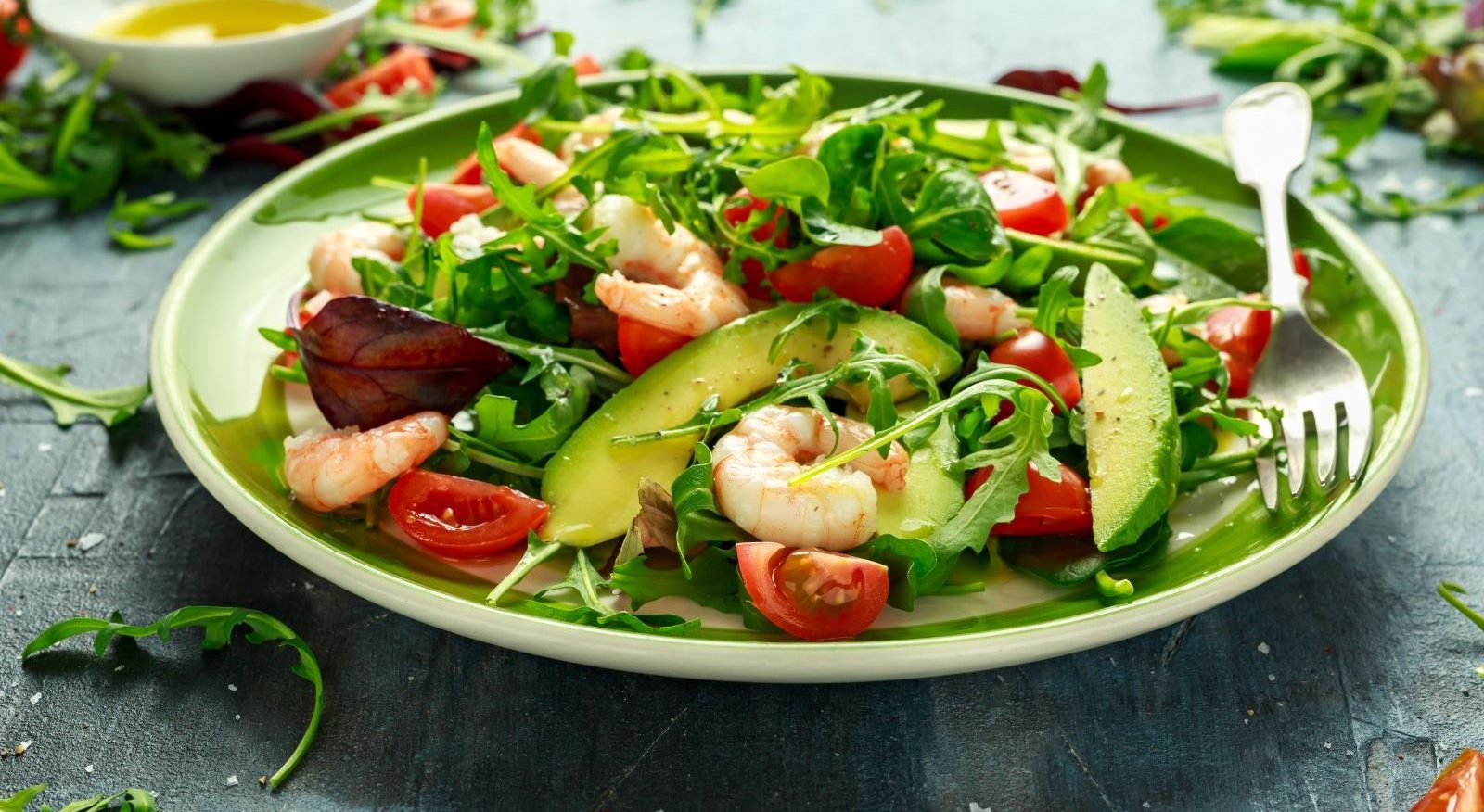<< Back
Is Salad Actually a Healthy Choice?

February 14, 2023
Look at you, taking your health in hand and opting for a salad. You’re the very picture of responsibility. A shining beacon of wellness.
But what if that “healthy” salad isn’t actually healthy?
Hartford HealthCare bariatric specialist Joseph St. Pierre, DO, in Westport, explains where you can go wrong (and right).
Pass on creamy salad dressings. Choose vinegar-based options instead.
The devil’s in the details – especially if those details literally drench your food in fat.
“Almost any creamy-based salad dressings will be high in fat,” says Dr. St. Pierre.
Avoid the usual suspects, like:
- Ranch.
- Blue cheese.
- Caesar.
- Thousand Island.
- Anything with “creamy” in the name.
Opt for vinegar-based salad dressings instead, like:
- Olive oil and vinegar.
- Apple cider vinaigrette.
- Italian vinaigrette.
What about fat-free dressings? Proceed with caution.
“Often, fat-free dressings are loaded up with extra sugar and sodium,” says Dr. St. Pierre. “Plus, a little healthy fat like olive oil can actually help your body process certain vitamins.”
> Want more health news? Text StartHere to 85209 to sign up for text alerts
Go for lean protein instead of fatty.
When you’re topping off those salad greens with chicken, fish or another protein, be thoughtful. The wrong protein, prepared the wrong way, can quickly turn an innocent salad sinister.
Choose proteins that are grilled, poached or baked:
- Chicken.
- Salmon.
- Shrimp.
- Tuna.
- Tofu.
Pass on these unhealthy proteins, which contain lots of fat and sodium:
- Fried chicken.
- Fried shrimp.
- Ground beef.
Watch the add-ons.
It’s the salad bar phenomenon: You start out strong at the beginning of the line, with leafy greens and fresh veggies. By the end, amid the bacon bits and croutons, you’re in a nutritional minefield.
“Those additions can ruin a salad’s nutritional value,” says Dr. St. Pierre.
Avoid:
- Bacon.
- Cheese.
- Sour cream.
- Croutons.
- Fried onions.
- Wonton strips.
- Tortilla strips or chips.
- Candied nuts.
- Dried fruit like cranberries.
Instead, go for:
Choose darker greens as your salad base.
Apologies in advance to anyone who loves a wedge salad.
“Compared to other types of salad greens, iceberg lettuce has hardly any vitamins and minerals,” says Dr. St. Pierre. “It’s not bad for you. But if your goal in eating a salad is to have something with lots of nutrients, go with another green.”
Here are better options. Typically, the darker the green, the higher the nutrients:
- Spinach
- Kale
- Boston, bibb and romaine lettuces
- Arugula and watercress
Finally, use common sense.
Just because it has “salad” in the name doesn’t mean it’s healthy. Take a dish like chicken salad. If it’s brimming with fatty mayonnaise, the risks outweigh the benefits.
“It’s easy to make a salad taste really good, but it’s also easy to make it unhealthy. So what is the happy medium?” says Dr. St. Pierre.
Ultimately, it comes down to sensible choices.
No problem. As a beacon of wellness, that’s kind of your thing.